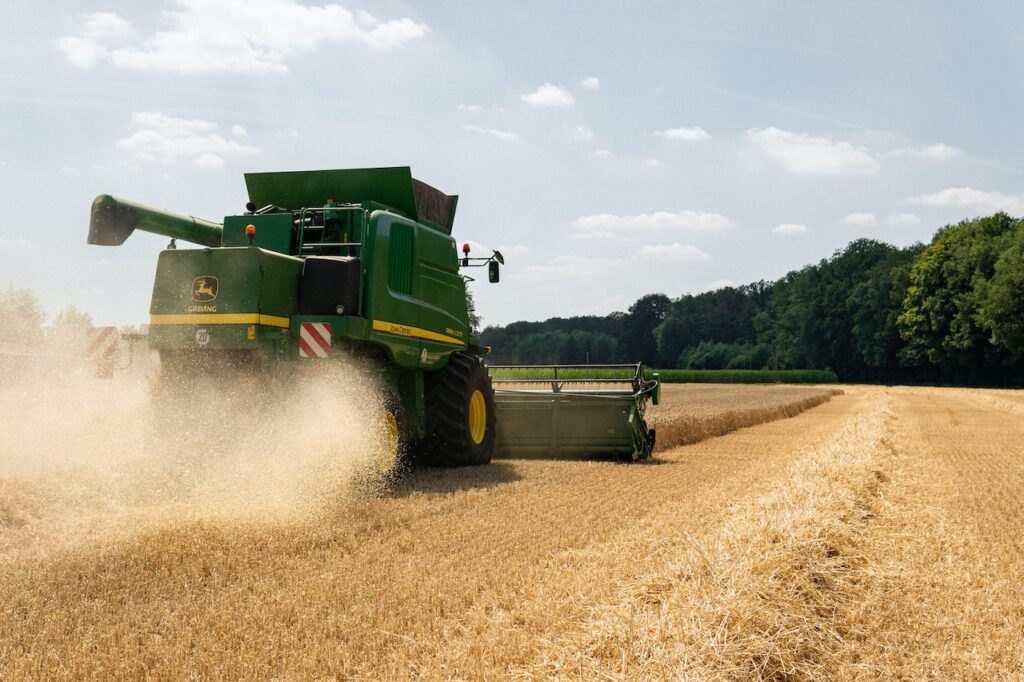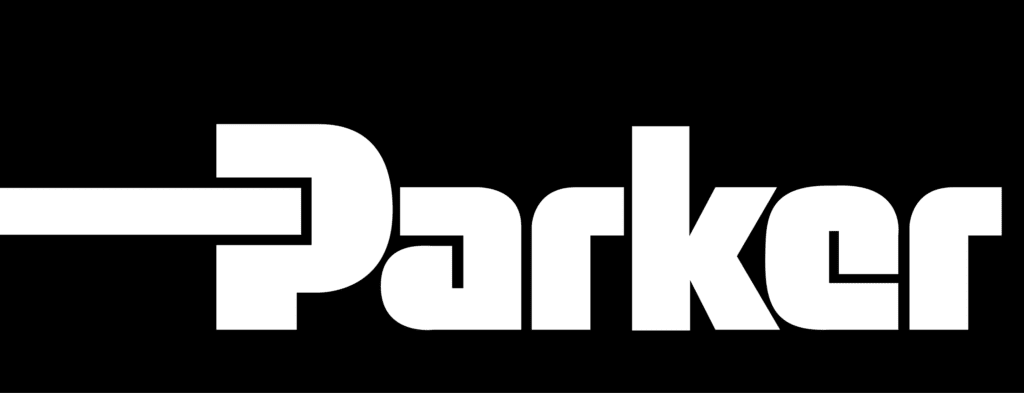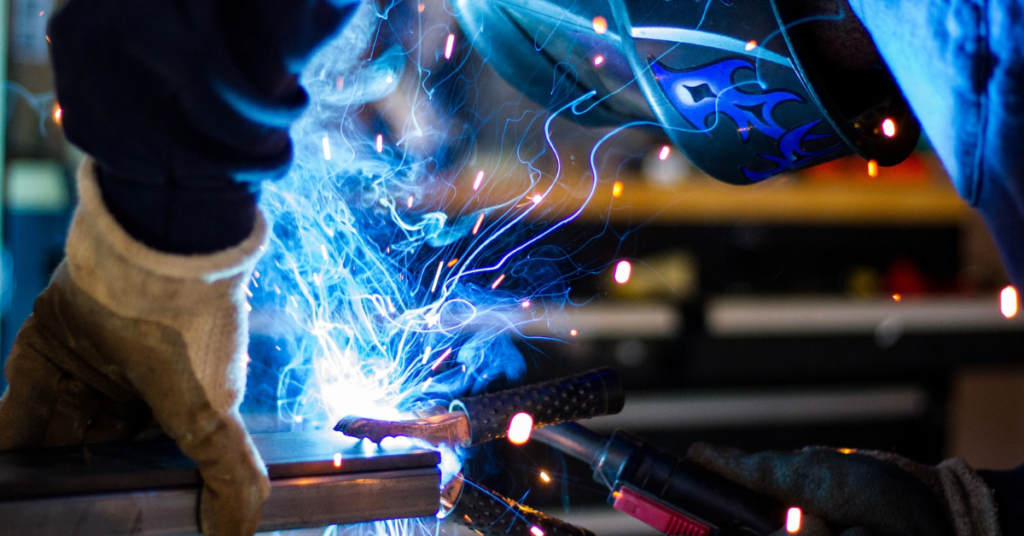The industrial machinery/components industry is crucial to the United States economy. The United States exports a vast amount of industrial machinery ranging from computers to construction equipment and medical devices. This sector is highly lucrative and competitive, with numerous opportunities for career development. It is important to understand that as the industrial machinery market grows, employment opportunities also increase, boosting the country’s GDP and manufacturing sector. If you are interested in a career in this industry, you may be wondering “how many jobs are available in industrial machinery/components?”
According to the United States Bureau of Statistics, there are over 500,000 jobs available in industrial machinery/components. The educational background and expertise required to qualify for these jobs vary considerably. However, this sector has numerous entry-level, blue-collar and white-collar jobs.
What is Industrial Machinery/Components?
Industrial machinery and components produce different construction, chemical, pharmaceutical, and engineering products. Therefore, industrial machinery/components are the specific parts required for a machine to function, for example, gears, pulleys, screws, nuts and bolts. The demand for industrial machinery is on the rise globally because industrial machines play a crucial role in sectors like manufacturing, construction, energy, agriculture, and transportation.
Is Industrial Machinery/Components a Good Career Path?
Yes. If you are in the industrial machinery/components industry, the jobs pay well with additional benefits like health insurance and dental and retirement plans. There are numerous available jobs in this sector depending on your qualifications. Besides making money, you can significantly impact different sectors that rely on the industrial machinery component industry. Therefore, this sector is a good career path if you want to improve people’s lives. Since the industry is growing rapidly, more jobs will become available in the future, creating opportunities for career advancement.
Best Paying Jobs in Industrial Machinery/Components
If you want to pursue an industrial machinery/components career, it is crucial to know the best paying jobs. Although there are other factors to consider before choosing a career, knowing which jobs pay well can help you make the right career choice.
Here are some of the best paying jobs in industrial machinery/components:
1. Operations Manager
An operations manager is one of the best paid personnel in industrial machinery/components. As an operations manager, you are responsible for a factory’s daily operations, from hiring employees to overseeing production and shipping. Operations managers play a crucial role in production because they must ensure the products meet the required specifications and that all safety procedures are followed. As an operations manager, you must have a bachelor’s degree in Business Administration (BA) or a related field. Operations managers earn approximately $115,000 per year.
2. Machinist
Machinists operate different types of machinery used in production, including drill presses and lathes. Machinists are highly skilled and experienced in handling these machines and producing high quality parts. Also, machinists must inspect and maintain the machines used in the manufacturing process. Although the median salary for machinists is approximately $48,000, some machinists make over $80,000 per annum.


3. Engineering Managers
If you are an engineering manager, it is your responsibility to plan, direct and coordinate research in an organization. Depending on the type of organization, an engineering manager can liaise with other engineers and departments to ensure all the projects are aimed at achieving the company’s long term goals. Annually, engineering managers earn about $153,000.
4. Human Resource Managers
Human resource managers play an important role in an organization. They develop, adopt and implement policies that help in employee recruitment, compensation, occupational health, and safety. Typically, human resource managers deal with the human resource aspect of an organization. Although the median salary varies from company to company, human resource managers usually earn $127,000 per year.
5. Quality Control Inspector
Quality control inspectors mainly deal with quality control. They ensure that all the products produced are of high quality by inspecting the different production stages. Quality control inspectors are highly skilled in effectively checking for defects or deviations. If a product is defective, a company can incur heavy financial losses, let alone ruin its reputation. Therefore, Quality control inspectors keep a close eye on the product and make necessary adjustments to meet the required specifications. With an annual salary of $139,000, quality control inspectors are among the top earners in the industrial machinery/components industry.
6. Industrial Production Managers
Industrial production managers oversee and coordinate the activities in manufacturing plants to ensure the workers produce high quality products promptly. Sometimes, these managers can hire and train workers. Their annual salary is approximately $103,000.
7. Crane & Tower Operators
Crane and tower operators primarily operate cranes and towers to lift, move and position heavy materials. They construct and maintain tall structures like bridges, stadiums, and skyscrapers. To become a crane operator, you need a high school diploma and are required to complete an apprenticeship to get the necessary training. A yearly salary for a crane or tower operator is $65,000, translating to about $31 per hour.


8. Marketing Managers
After production, marketing managers plan, direct and coordinate all marketing efforts. Although their duties and responsibilities may vary from one company to another, they oversee marketing plans, including advertising and marketing products. They also track sales data to help them determine if the marketing plan is working and what should be done to increase sales. As of 2021, the annual salary of marketing managers was $133,000.
9. Industrial Designers
Industrial designers research, plan, design, develop and test new industrial machinery/components. An industrial designer or CAD technician must be innovative to come up with new ideas. Typically, they work hand in hand with engineers, quality control inspectors, and human resource managers to ensure the new products meet the required safety and performance standards. Industrial designers earn about $77,000 per year.
10. Assemblers & Fabricators
Assemblers and fabricators assemble components via welding, riveting, screwing, or soldering. Assemblers, welders, and fabricators typically work in production plants and factories to help in product assembly. While some make $37,000 annually, many experienced assemblers and fabricators earn more than $58,000 annually. The salary is mainly determined by education qualifications, experience level, and company/employer.
Types of Industrial Machinery
Industrial machinery refers to any machinery/equipment used for industrial uses, for example, in manufacturing, mining, agriculture, or construction. Here are some common types of industrial machinery:
Machine Tools
Machine tools are mainly used in manufacturing and processing products. Machine tools vary widely depending on their intended use. Grinders, drill presses, and milling machines are machine tools that can be used to create or modify parts/products.
Power Generation Equipment
These machines generate electricity which is required to run factories and power plants. Some industrial machinery used to generate electricity include solar panels, wind turbines, and gas generators.


Construction Equipment
Nowadays, there are numerous pieces of equipment used in the construction industry. The equipment is used for many tasks such as digging, lifting heavy objects and demolition.
Material Handling Equipment
Material handling equipment is used to move heavy loads or objects. These machines are crucial in moving heavy materials in the mining, construction, and agriculture industries. They include equipment like elevators, conveyor belts, forklifts, and cranes. The type of material handling equipment used varies depending on the type of material used, available personnel, timeline, landscape, and safety, among other factors.
Metal Working Machinery
These machines are used when working with metal, whether you are joining, cutting, or shaping metal parts. Here are examples of some of the equipment used in metal working:
• Drilling machines – They create holes in metal, wood, or plastic materials
• Grinding machines – They scour/grind materials to achieve desired results, for example, flattening or smoothening surfaces
• Welding machines – They weld metal pieces together.
• Milling machines – They create solid materials and are mainly electric powered. Milling machines are categorized depending on their size, power, or function.
Transportation Equipment
Transportation is vital in moving products and people from one place to another. With numerous transportation equipment, people and goods can rely on air, road, or water as a means of transport.
Agricultural Equipment
Agriculture is important in the production of food. Agricultural equipment such as tractors and combine harvesters are used to produce agricultural products globally. Besides increasing production, agricultural equipment saves time and improves product quality.


Top Companies in the Industrial Machinery/Components Industry
The United States is among the top industrial machinery exporters in the world, competing with the likes of China, Germany, and Japan. Being one of the largest industrial machinery exporters creates employment opportunities while boosting the country’s Gross Domestic Product (GDP). The industrial machinery/component industry serves numerous sectors including: energy, agriculture, construction, mining, infrastructure and transportation.
Here are the leading companies in sectors like construction, electronics, automotive, and pharmaceuticals:
Terex Corporation


Terex Corp. manufactures lifting and materials handling equipment. With more than 20,000 employees globally, Terex Corp. manufactures industrial machinery targeting the transportation, construction, mining, shipping, and recycling industries.
Caterpillar Incorporation


Caterpillar Inc. is arguably one of the largest manufacturing companies in the United States. The company primarily deals with heavy machinery and sells financial products and insurance policies. Caterpillar Inc. generates billions of dollars per year and creates employment globally. For these reasons, Caterpillar Inc. is considered a Global Fortune 500 company.
Parker Hannifin Corporation


Parker Hannifin Corp. is a leading manufacturer of motion control technologies. With more than 60,000 employees globally, Parker Hannifin plays a crucial role in climate control, hydraulics, aerospace, and pneumatics.
Baker Hughes Inc.


Baker Hughes Inc. focuses on the oil and gas sector. The company manufactures industrial machinery essential in oil drilling and production. Although Baker Hughes Inc. operates in over 120 countries globally, its headquarters are in Houston, TX, and London, UK.
Xerox Corporation


Xerox Corp. manufactures print machines and related document technology products for the banking, manufacturing, government, education sectors.
Deere & Co.


Deere & Co. manufactures heavy equipment targeting the construction, agricultural, and forestry sectors.
AGCO Corporation


AGCO Corp. manufactures heavy agricultural equipment like tractors, seeding and tillage equipment, and combined harvesters. The company’s renowned brands include Massey Ferguson, Valtra, Fendt, and Challenger.
Cardinal Health


This health service company manufactures and distributes medical and pharmaceutical products like gloves and surgical apparel.
General Motors


General Motors has revolutionized the transport industry as one of the leading manufacturers distributors of automobiles and vehicle parts. It was the leading automaker globally for decades, with Cadillac, GMC, Buick, and Chevrolet being their four core brands.
Apple Incorporation


Apple Inc. designs, manufactures, and sells electronics like mobile phones and computers. They also deal with computer software and offer online services; for example, Apple Pay to their customers. Apple is arguably one of the most valuable brands with a total revenue of approximately $370 billion, globally in 2021!
Frequently Asked Questions (FAQs)
What is considered industrial machinery?
Industrial machinery is the equipment or machines used to manufacture products. In contrast, industrial components are the parts that make up industrial machines or equipment, for example, bearings, gearboxes, or pulleys.
Which jobs are white-collar in industrial machinery/components?
You need a higher educational qualification, i.e., a bachelor’s or master’s degree, to qualify for a white-collar industrial machinery/components job. Some examples of white-collar jobs in industrial machinery include computer programmer, industrial engineer, industrial designer, and quality control inspector.
Which jobs are blue-collar in industrial machinery/components?
You do not need a college degree to qualify for a blue-collar industrial machinery job. With a high school diploma, you can train and work by completing an apprenticeship. Examples of blue-collar jobs include truck drivers, welders, crane operators, fabricators, and assembly line workers.
What are the pros of a career in industrial machinery/components?
Besides earning a decent salary, most industrial jobs provide an excellent work-life balance. Therefore, you can easily spend time with your loved ones, get a good salary and enjoy career advancement opportunities.
What are the cons of a career in industrial machinery/components?
Most of the jobs in industrial machinery/components are labor intensive and can be draining physically and mentally. Also, most high paying jobs in different sectors require higher qualifications, i.e., a college degree. Therefore, you must settle for lower paying roles if you lack the college degree or level of experience needed.
Final Words
If you are interested in a career in industrial machinery/components, now is a good time to get started. According to the Bureau of Labour Statistics, employment opportunities in industrial machinery/components are expected to grow by approximately 19% by 2030. Therefore, now is a great time to enroll in a community college or trade school to acquire the much needed skills and land a job in the ever growing industrial machinery/components industry.

